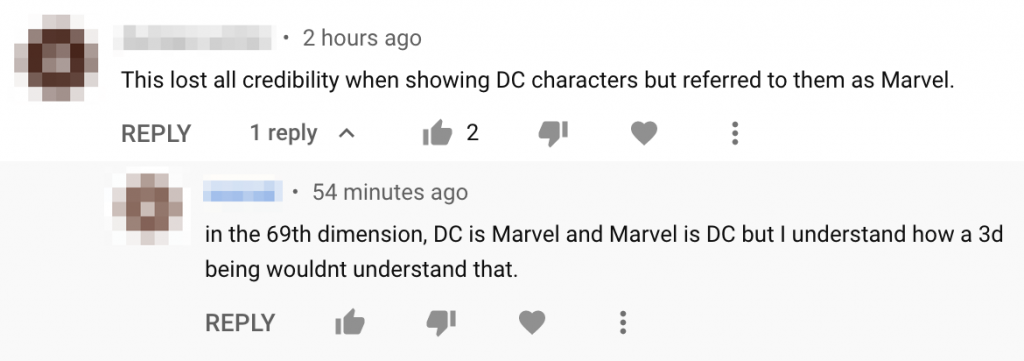I’ve seen this behavior before, particularly on Quora, where people feel the need to vigorously correct others about perceived factual inaccuracies. It seems to drive people mad at times. As the meme goes, “Someone is wrong on the internet…”

I have ambivalent and complex feelings about this phenomenon. On the one hand, I understand it and it’s only natural. And it is good to help people gain more accurate and useful knowledge. On the other, as a weapon against the hyperreal, I suspect it does not have the powerful negating impact which its practitioners probably believe that it does.
Some recent examples observed in the wild, via Reddit thread (archived).

This person wants others to be aware that you can’t “fix your life” by going through an alien portal in Antarctica. What I want to know is, how can they be so sure? Have they ever tried?
Part of me also wonders: if someone became fixated on the notion they *could* fix their life that way, and went through all the effort to *go* to Antarctica and find out for themselves, might that very effort in fact change their lives? Assuming they could find some kind of portal, of course. Or perhaps, maybe even or especially if they ended up failing to find one! At least they will have tried. I urge the curious to go find the Portal in Antarctica & test, test, test! It won’t be the portal that changes your life – it will be you!
I’ve also seen people apparently becoming frustrated with non-standard or counter-factual assessments of reality in YouTube comments, such as on this video.

Fortunately, there is a balancing force in the universe that seems to indicate for every Guardian of the Real out there, there is an equal and opposite Guardian of the Hyperreal who will themselves react and counter in appropriate circumstances. It may not be a 1-to-1 ratio, but they seem to appear where they are needed!
A similarly frustrated response can be seen here:

What’s interesting to me in these two cases is that, of all the potential inaccuracies which might be corrected or explored in the two linked videos, in both instances, commenters jumped on the more basic ones. In doing so, they left the more convoluted aspects of the stories presented more or less completely unexamined. Perhaps they feel that in attempting to debunk the low level items, they make the rest non-credible. Maybe they are right, but my instinct at least is that they are not. It’s also entirely possible that their counter-engagement actually drives further conversation & potentially up-ranks the videos.
Another quick example from Reddit:

Okay, I won’t pretend I’ve never taken someone to task on the internet for saying something that was misleading, incomplete, or which I found to be just plain wrong. So, I totally get the impulse here. In fact, I don’t discount the probability I myself will do it again at some point as well… Perhaps I will think twice about it now though. But probably not!

Leave a Reply
You must be logged in to post a comment.